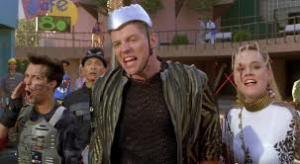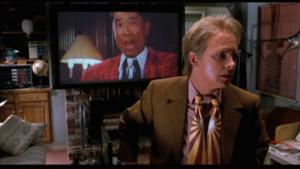Sexism and WC
Alright, dear readers, it’s Friday, and the subject of today’s post is sexism and workers’ compensation, but your humble blogger doesn’t want to tell any sexist jokes, so here’s a video of construction workers NOT cat-calling:
Ok, so, the buzz around all the workers’ compensation (and some of the non-workers’ comp) news sources is that Assembly Bill 305 is going to strive to reverse sexism in workers’ compensation law. Now, AB-305, introduced on February 12, 2015 by Assemblywoman Gonzalez, has absolutely nothing to do with workers’ compensation, but from the looks of it, California Applicants’ Attorneys’ Association has a draft of the language that may eventually be introduced here.
Basically, the idea is that Labor Code section 4663, which requires “[a]pportionment of permanent disability [to] be based on causation” to be amended to specifically exclude pregnancy, breast cancer, menopause, or osteoporosis from the apportionment analysis.
Now, your humble blogger is no political analyst, but I’m guessing that this would not be an issue, and no such bill would be necessary, if doctors never apportioned the cause of permanent disability to these conditions. I’m also not a physician, but I’m going to go out on the proverbial limb and say that some doctors could reasonably conclude that the effects of pregnancy, breast cancer, menopause, or osteoporosis might contribute to the overall permanent disability of an industrially injured worker.
As such, if, non-industrial conditions are causing permanent disability, and AB 305 would prohibit apportionment to them as non-industrial causes of permanent disability, aren’t we just forcing employers to provide permanent disability benefits for non-industrial disability?
The language in this proposed piece of legislation continues that “[a]pportionment in cases of psychiatric injury may not be based on psychiatric disability or impairment caused by sexual harassment.” Again… if a portion of an injured workers’ psychiatric permanent impairment is caused by sexual harassment, particularly non-industrial sexual harassment, why should the employer be forced to pay for the same?
Interestingly enough, and I hesitate to write this less I provide anyone with ideas, Labor Code section 3208.3(b)(1) requires that the injured employee claiming a compensable psychiatric injury prove, by a preponderance of the evidence, that actual events of employment were predominant as to all causes combined of the psychiatric injury. So, if 50% of the permanent disability of the non-psychiatric injury is caused by menopause, and we can’t apportion the PD to the menopause, the menopause is still not an actual event of employment. Causation of permanent impairment and causation of injury are different points of analysis, after all.
Now, on the “bright side,” that means more money for injured workers and more money for the attorneys of injured workers.
On the other hand, in the long run, when we reach the tipping point and start losing more jobs. You see, dear readers, in the circle of economic life, applicants’ attorneys need injured employees. But, of course, injured employees (and non-injured employees) need employers. It goes without saying that insurance companies and defense attorneys are in the same cycle of economic life.
With all due respect to assemblywoman Gonzalez, I am hoping this idea has a bright and short life in the discussion pools, and then settles comfortably into a footnote status that some researcher will uncover in 50 years (Did you know that in 2015, some people wanted to exempt from apportionment certain conditions which are typically suffered by women?).

